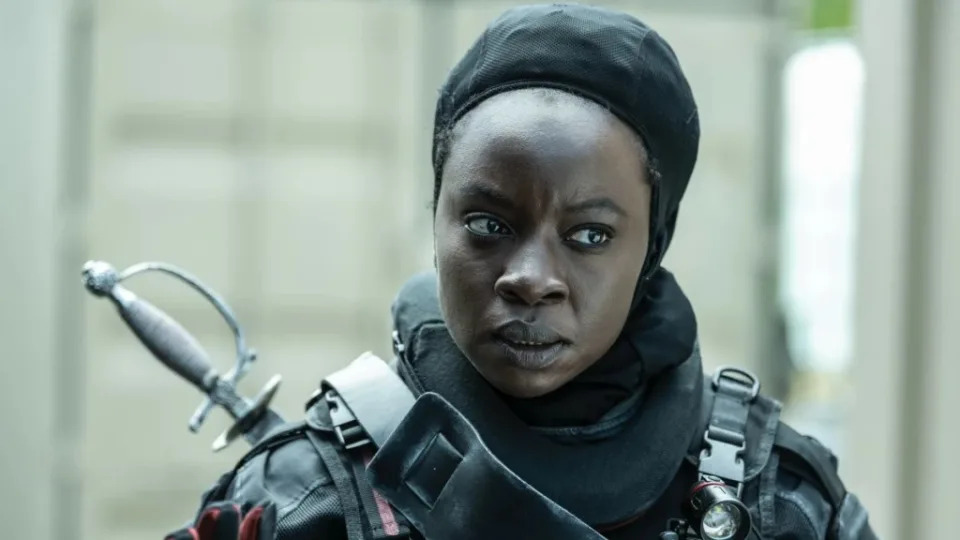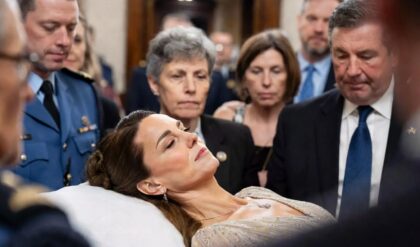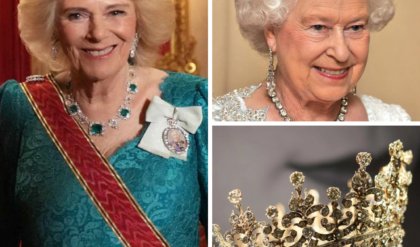After six heart-pounding episodes, “The Walking Dead: The Ones Who Live” concluded on as close to a happily-ever-after as this universe knows with Rick (Andrew Lincoln) and Michonne (Danai Gurira) reuniting with their children. According to executive producer and “Walking Dead” chief content officer Scott Gimple, that was always going to be the case.
“I don’t have the best working memory,” Gimple confided to TheWrap. “I’m 90% sure, though, that we knew the ending of this before we started. We just didn’t know the journey to that end.”
Gimple noted that he, Lincoln and Gurira always knew that they wanted this limited series to be about these two lost lovers finding each other physically, but that along the way, it also became about them finding each other “emotionally” and “spiritually.”
“But this was the end. There was no way this wasn’t the end,” Gimple said.
That finale came with a surprise for longtime fans of the franchise. In “The Last Time,” Rick and Michonne finally learn the ultimate plan of the CRM (Civic Republic Military): target other survival colonies, save a select number of their children and eliminate them in the hopes that decreasing the country’s population will give humanity a better shot at survival. Though Rick and Michonne discover this plan separately, they come to the same conclusion together, opting to bring down the CRM once and for all. As they contemplate what they need to do, “The Ones Who Live” cycles through flashbacks of some of the most emotional death scenes and choices they had to make in the original series.
“Those flashback scenes are showing just how much they are the same person, just how much they’re the ones who do crazy things on the behalf of others,” Gimple said. “Going back to [Robert] Kirkland’s style, they’re the ones who get the job done. They’re the ones who live.”
As gratifying as it may be to finally learn the ultimate goal of the mysterious CRM and see its elimination, Major General Beale (Terry O’Quinn) drops in an alarming statistic as he defends his organization. According to the calculations of CRM scientists, humanity can only exist for 14 more years at its current population level. That’s why the government agency was so hellbent on eliminating colonies.
“That isn’t a point of propaganda, and I think that’s what makes them complicated villains,” Gimple explained.

Though the “Walking Dead” head confirmed the statistic “can be trusted,” he warned not to take it too seriously. “I wouldn’t bet that it’s 100% correct. They have very good intelligence, but they neither have the technology nor the intelligence capabilities to be certain of every corner of the world,” Gimple said. “So I wouldn’t just brush it off, but I wouldn’t say it’s certain.”
As for “The Ones Who Live” potentially being the last fans will see of these star-crossed lovers, Gimple is hoping that it’s not the case.
“I don’t want this to be the last of Rick and Michonne, and I have all sorts of dreams on what we could do next. Right now, they’re just plans, just fan fiction. But we do have a very good track record of dreams coming true,” Gimple said.
Gimple is “excited” for the future of “The Walking Dead” and noted that he’s enjoyed the unexpected swings the franchise has taken recently with series like “Dead City,” “Darryl Dixon” and “The Ones Who Live.” Yet looking forward, he’s interested in returning to the basics of this franchsie.
“I’d love to do more classic characters in very different situations, but with those same sort of ‘Walking Dead’ story values,” Gimple said. “That said, I do have insane ideas that have nothing to do with any of that. I like doing both, but I think we’ve had an emphasis on the experimental. I would love to do more classic stuff for a little while.”





